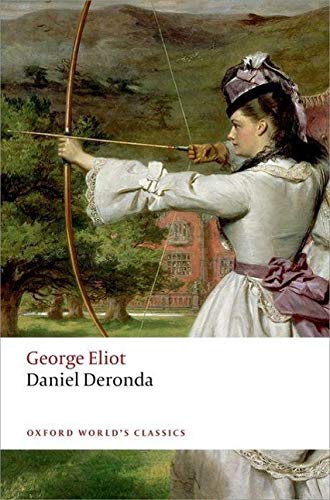
Daniel Deronda
George Eliot
Oxford World’s Classics, 2014
I decided to read Daniel Deronda after it was twice recommended by guests on the 18Forty podcast. A teacher friend noted it was the first serious portrayal of Jews and Judaism in western literature. In the mood for some literature, along with a deepening interest in late 19th century Jewish life, I was intrigued.
This was my first foray into George Eliot (Mary Ann Evans, 1819–80). W. H. Hudson notes the philosophical preoccupation of her work, her “excessive use of analysis and commentary”, and that Daniel Deronda in particular is “almost choked by science and psychology”1. And while a bit much sometimes, I enjoyed the density of references and human insights. And much like with Turgenev, I appreciated the relatability of Eliot’s late 19th century literary realism.
Originally published 1876, the book weaves the story of Gwendolen Harleth, proud and independent, who reluctantly marries a cruel aristocrat after her family’s money is lost, with the story of the title character, reserved and restrained, whose search for his mysterious origins slowly becomes the main focus of the book.
- Willam Henry Hudson, An Outline History of English Literature, Rev. ed. (G. Bell and Sons, 1963) 257-258 ↩︎